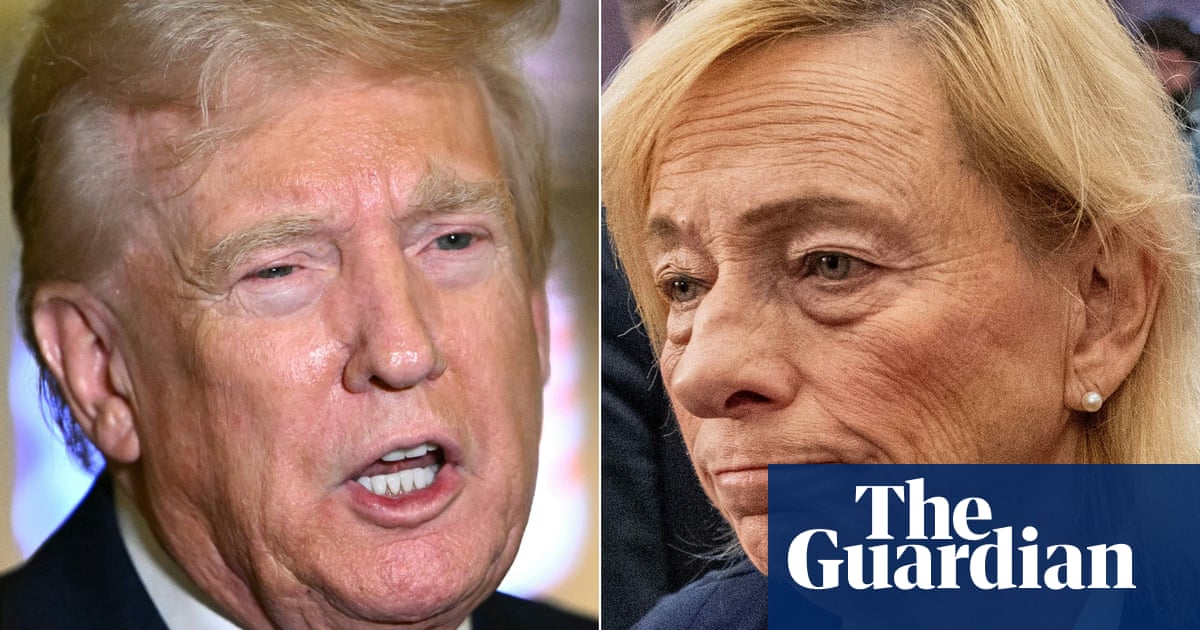TheTrump administrationhas agreed not to freeze funds to Maine schools, a win for a state that was targeted by the president over its support of transgender rights.
In a settlement disclosed on Friday, the US Department of Agriculture (USDA) said it would halt all efforts to withhold funds for a child nutrition program in Maine. The USDA had suspended those dollars after Maine officialssaidthe state would not comply with Donald Trump’s demands that trans girls be barred from participating in girls’ sports.
In February, when the president directly threatened to revoke funding from the state at a White House meeting with governors, Janet Mills, Maine’s Democratic governor,had responded, “We’ll see you in court,” in a widely shared exchange.
Maine thensued the USDA last monthto maintain its funding and agreed on Friday to drop its lawsuit in exchange for the restoration of funds.
“It’s good to feel a victory like this,” the governor said a press conference, thePortland Press Herald reported. “I stood in the White House and when confronted by the president of the United States, I told him I’d see him in court. Well, we did see him in court, and we won.”
The governor said USDA had frozen funds for a program that helps feed 172,000 children in the state, the paper reported.
The USDA did not immediately respond to a request for comment.
The settlement says the USDA and Brooke Rollins, the secretary of agriculture, “agree to refrain from freezing, termination, or otherwise interfering with the state of Maine’s access to United States Department of Agriculture funds … based on alleged violations of Title IX without first following all legally required procedures”.
The Trump administration had alleged that Maine’s policy of allowing transgender youth’s participation in sports violated Title IX, the federal anti-discrimination law.
Maine’s attorneys argued that the child nutrition program received or was due to receive more than $1.8m for the current fiscal year. Prior year funds that were awarded but are currently inaccessible total more than $900,000, the lawsuit said. The complaint also said that the program was anticipating about $3m that is typically awarded every July for summer meal program sponsor administration and meal reimbursement.
A federal judge had ordered the Trump administration to unfreeze funds last month after finding that Maine was likely to succeed in its legal challenge.
Aaron Frey, the Maine attorney general, said in a statement on Friday: “It’s unfortunate that my office had to resort to federal court just to get USDA to comply with the law and its own regulations.
“But we are pleased that the lawsuit has now been resolved and that Maine will continue to receive funds as directed by Congress to feed children and vulnerable adults.”
The settlement does not affectanother ongoing lawsuitfiled by the Trump administration against the Maine department of education over its policy for trans athletes.
Mills said Friday she was “confident” the state would also prevail in that case, the Portland Press Herald reported. The governor, who has said the dispute was aboutdefending states’ rights, added: “These bullying tactics, we will not tolerate them.”
